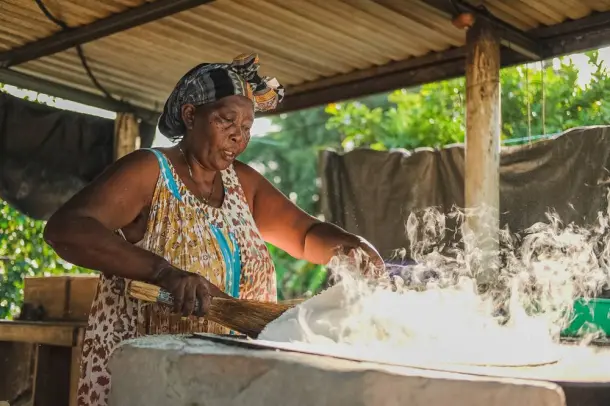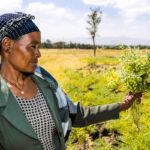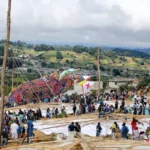
The United Nations Educational, Scientific and Cultural Organization (UNESCO)has inscribed Traditional knowledge and practices for the making and consumption of cassava bread I Cuba, Dominican Republic, Haiti, Honduras, Venezuela and Bolivarian Republic on its Representative List of Intangible Cultural Heritage of Humanity.
The United Nations Educational, Scientific and Cultural Organization (UNESCO)has inscribed Traditional knowledge and practices for the making and consumption of cassava bread I Cuba, Dominican Republic, Haiti, Honduras, Venezuela and Bolivarian Republic on its Representative List of Intangible Cultural Heritage of Humanity.
Cassava bread is a round bread made from the cassava tuber. In Cuba, the Dominican Republic, Haiti, Honduras and the Bolivarian Republic of Venezuela, cassava bread varies in flavour (savoury or sweet), texture (soft or hard), size and thickness.
In most countries, it is a key part of daily diets and provides a connection with the communities’ Indigenous and African heritage. It also promotes unity, as each community values its own cassava bread making while recognizing the practices of others.
An opening ceremony was on Sunday, 1 December 2024. The session is chaired by H.E. Ms Nancy Ovelar de Gorostiaga, Ambassador Extraordinary and Plenipotentiary and Permanent Delegate of the Republic of Paraguay to UNESCO.




